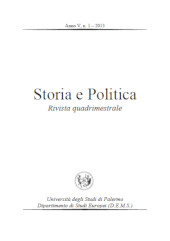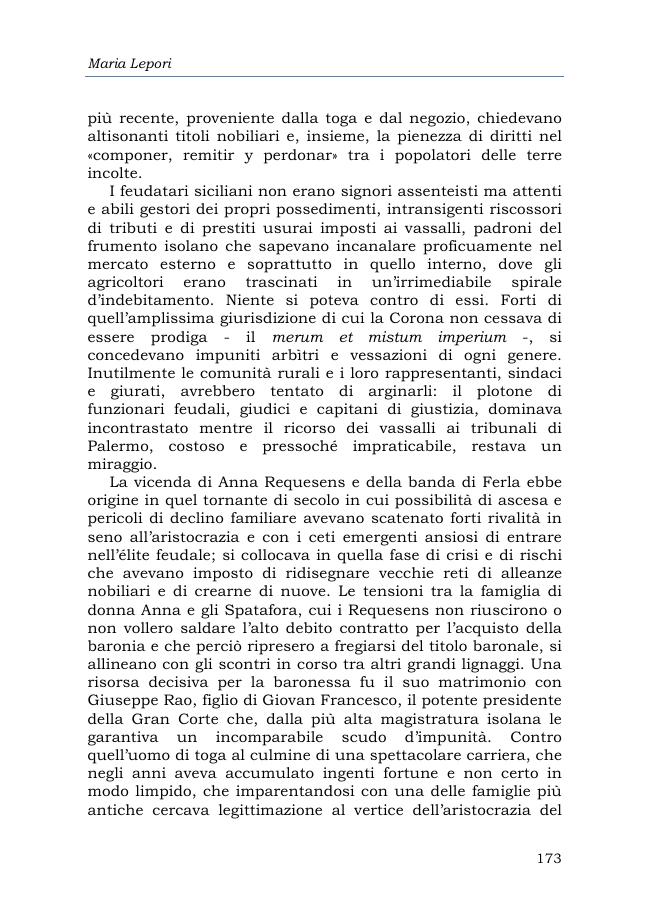Banditismo e fazioni nobiliari nella Sicilia del Seicento
167-178 p.
In his essay, Bruno Pomara distances himself from an interpretation of ancient regime Sicilian crime as forerunner of the Mafia or social banditry, and as a consequence of misery. Studying band Ferla, he identifies the strong knot of delinquency in the island in the early Seventeenth Century in the tensions between irreducible and antagonistic aristocratic factions. The "enemistades capitales", produced by the competition in marriage and asset strategies, gave rise to extensive networks of class and interclass solidarity and seemed to violence everywhere. Even in the most remote lands, protection and fidelity networks involved both small and great nobles, men of the offices of all levels, regular and secular clergy. Compositions between parties, agreed and recorded public peaces , to which also the sovereign had to adapt, were more successful in calling a truce than the strict laws of the king, exemplary executions or spectacular repressive campaigns. [Publisher's text].
-
Articles from the same issue (available individually)
-
Information
ISSN: 2037-0520
DISCIPLINES
KEYWORDS
- Sicily, Seventeenth Century, Social History, Banditry



